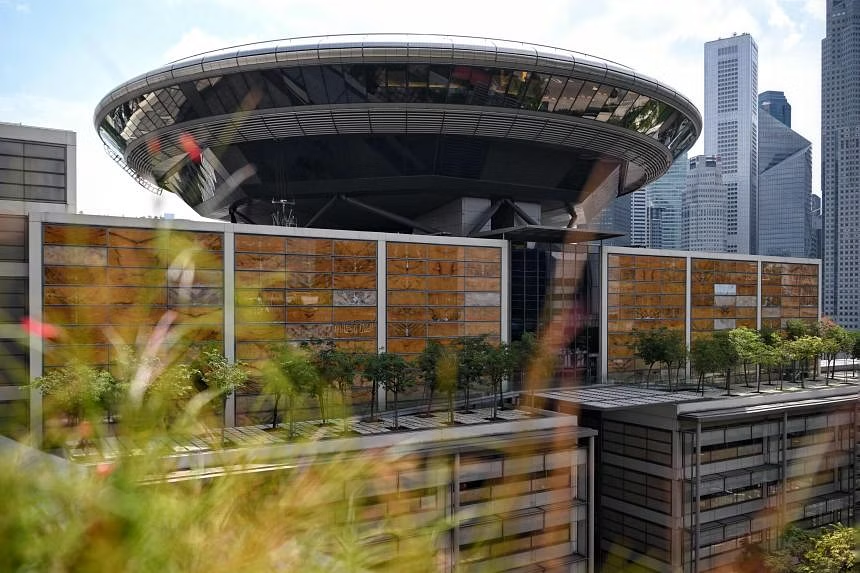Singapore: Bar admission denied to 47-year-old who committed plagiarism twice during law course
Mr Gabriel Silas Tang Rafferty cannot submit a fresh application to be admitted as a lawyer in Singapore for at least five years.

A 47-year-old aspiring lawyer, who committed plagiarism twice in 2019 while studying for a juris doctor law degree at the Singapore Management University (SMU), has been refused admission to the Bar.
Mr Gabriel Silas Tang Rafferty cannot submit a fresh application to be admitted as a lawyer in Singapore for at least five years.
Chief Justice Sundaresh Menon said Mr Rafferty’s character defects were so “dire” that a dismissal of his admission application was called for, to signal the urgent need for reform.
The case is the latest in a series of applications for Bar admission that have come before the Chief Justice in recent years, in which an applicant’s fitness of character has been called into question.
Mr Rafferty is the first to have his application dismissed.
In a judgment on March 22, Chief Justice Menon said Mr Rafferty was an applicant who did not acknowledge the full extent of his wrongdoing, did not appreciate his duty of candour, and who had tried to mislead the court and the stakeholders in his application for admission.
In other cases where the Chief Justice judged that the applicants were not yet fit and proper to be called to the Bar, he had allowed them to withdraw their admission applications.
While the practical effect of these two options may be similar, the signalling of each is fundamentally different, said the Chief Justice.
Mr Rafferty committed plagiarism in early 2019 during his first year in SMU’s juris doctor programme, which offers a law degree for students who have undergraduate degrees in other disciplines.
In the first incident, he obtained the work of a classmate and copied many portions of her work for a written assignment that he submitted on Feb 2, 2019. After the plagiarism came to light on Feb 12, 2019, he told his lecturer he would learn from the incident, and promised it would not happen again.
His lecturer told him more severe consequences would follow if he repeated his misconduct.
Despite this, Mr Rafferty committed plagiarism again.
The second incident concerned a graded research paper that he submitted on March 14, 2019, for another module. Significant portions of his paper were flagged by Turnitin, a software used to check for plagiarism, to have been plagiarised from multiple sources without proper attribution.
After an inquiry, he was found to have committed plagiarism. He failed the module and was handed a formal letter of reprimand.
On April 12, 2023, when he filed his affidavit in support of his Bar admission application, he disclosed the second incident – though he downplayed his culpability – and omitted mention of the first incident.
On June 21, 2023, the Attorney-General learnt of the first incident from correspondence with SMU.
It was only after he was asked to give more information about the first incident that Mr Rafferty filed an affidavit to disclose it.
His explanation for the non-disclosure was that he believed the first incident was confidential based on the verbal assurances of his professors, which led him to believe that his wrongdoing had been forgiven.
In his judgment, Chief Justice Menon said the failure to disclose the first incident amounted to dishonesty and an attempt to mislead the court.
The Chief Justice said Mr Rafferty made a deliberate decision to not disclose the first incident because he did not think it would be uncovered, even though he knew it was relevant to his admission.
As for the second incident, the Chief Justice noted that more portions of the paper had been plagiarised than not. He was not convinced by Mr Rafferty’s claim that he did not appreciate the need to cite his sources.
“That the applicant did not learn from the first incident and so blithely repeated it, suggests a disturbing degree of recalcitrance,” he said.
It also emerged that Mr Rafferty under-declared the portions that had been plagiarised for both incidents. The Chief Justice said this reflected an unwillingness to come completely clean.
He said Mr Rafferty’s argument that he should be allowed to withdraw his admission application indicated “a severe lack of insight into the true ethical nature and implications of his actions”.
These considerations were compounded by the fact that Mr Rafferty was 47 years old, and was expected to display a measure of maturity and judgment.
Chief Justice Menon said allowing the withdrawal of an admission application is an invitation to the applicant to publicly take responsibility for his wrongdoing, accept that he is not a fit and proper person for admission, and pledge to rehabilitate himself.
But Mr Rafferty did not appear even to have embarked on the process of rehabilitation, he said.


